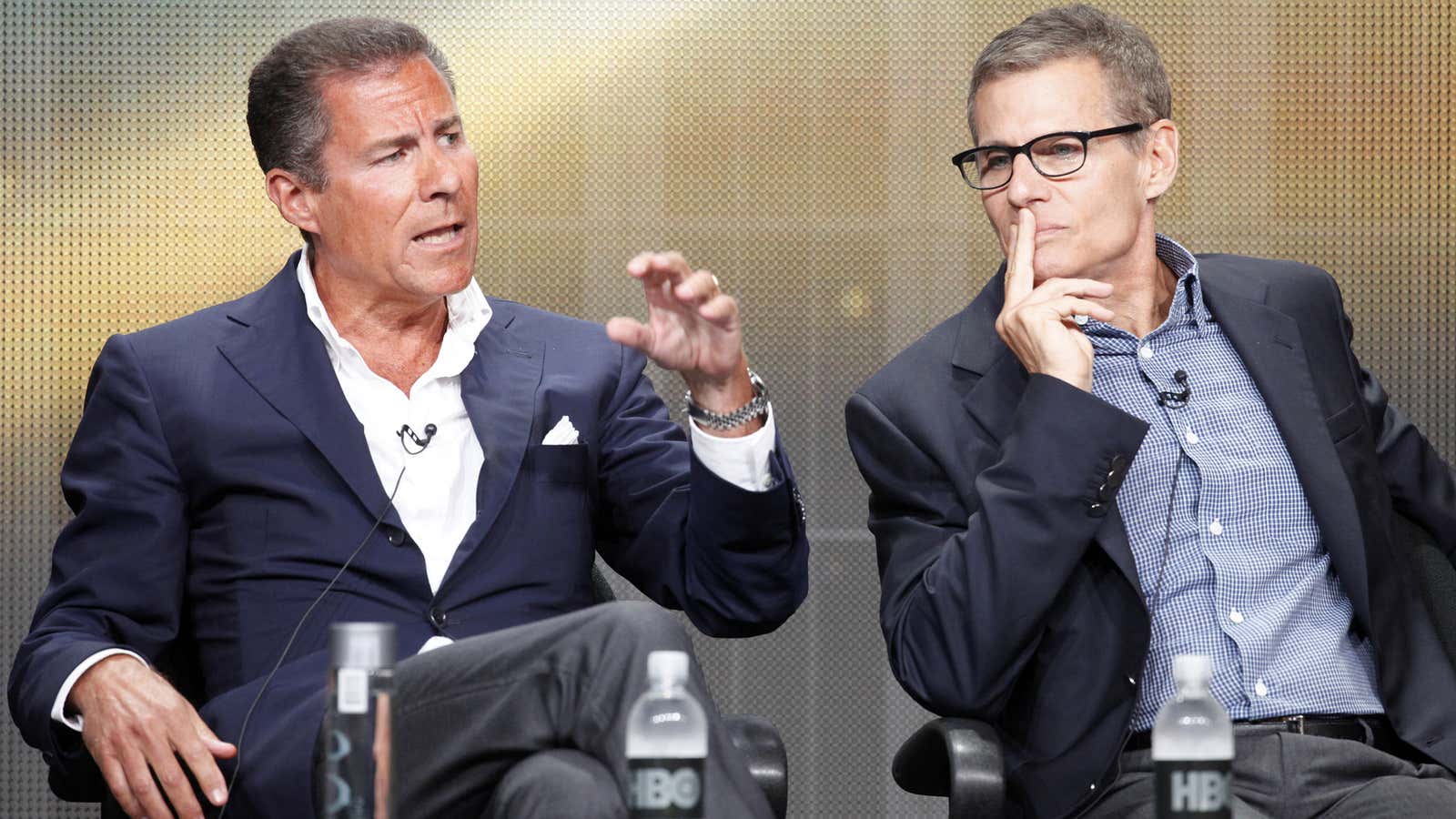Does it “elevate the brand”?
HBO chief executive Richard Plepler says that’s the key question the company asks before deciding to take the plunge on a new show. While parrying questions from technology and media analysts at a conference earlier this week, he offered this glimpse of the thinking behind HBO programming decisions. Here’s the exchange:
Benjamin Swinburne, Morgan Stanley analyst: How do you think about the [return on investment] on investing in originals and sort of measuring whether it makes sense to put that money to work?
Plepler: There’s a fundamental question every time we assess programming cost, every time we assess programming decision. It’s pretty simple. Is it brand elevating? And it is not essential to us when we make a decision to green light a show that it is necessarily going to do True Detective numbers exceeding 11 million or Game of Thrones numbers, now the biggest show in our history, over 14 million viewers. What’s essential is that it’s going to elevate the brand and the culture and continue to build an appeal out in the popular culture about why HBO is special and differentiate it.
In an era when broadcast networks were becoming dominated by an ever-lengthening list of “reality” programs, HBO focused on distinctive, well-produced shows, starting with the launch of its hour-long prison drama, Oz, in 1997. In part, that’s because HBO doesn’t sell any advertising. It makes money on the affiliate fees it charges cable companies to use its programming. The more compelling HBO shows are, the more likely they are to keep viewers paying for cable, and that’s why cable companies are willing to pay top-dollar fees to HBO. The strategy seems to be working. HBO’s parent, Time Warner, recently reported that operating profit at HBO rose 16%, to $1.79 billion last year.
Others have followed suit. For example, the critical success of Mad Men drives cable companies to carry AMC, a basic channel that used to merely run old movies. Likewise, Netflix’s well-received political drama House of Cards has been a key to driving subscribers to its video-streaming service.
By way of background, Plepler—who was named HBO chief in 2012—didn’t start his career in the entertainment industry. He began in politics, working in the early 1980s as a staffer for then Senator Christopher Dodd, of Connecticut. (Dodd has subsequently gone Hollywood himself and now heads up the US film industry’s main lobbying group.) Plepler arrived at Time Warner in 1992, starting in corporate communications and rising to become a top lieutenant to then-HBO chief Jeff Bewkes, Time Warner’s current chief executive. He took over as head of programming at HBO in 2007.
But politics clearly remains a passion for Plepler, who reportedly championed politically themed HBO programming such as the channel’s adaptation of “Game Change,” the Mark Halperin and John Heilemann behind-the-scenes account of the 2008 presidential campaign. Even Plepler’s comments to the assemblage of analysts this week were peppered with political references. When analysts asked the inevitable questions about whether HBO will ever offer its streaming service à la carte, that, for now, HBO believes restricting the service to cable subscribers makes the most sense given the large numbers of cable customers compared to broadband only households.
“I would invoke President Clinton’s convention speech of 2012 when he was talking about Romney’s economic policies,” Plepler said. “It’s just arithmetic. It’s just arithmetic.”




